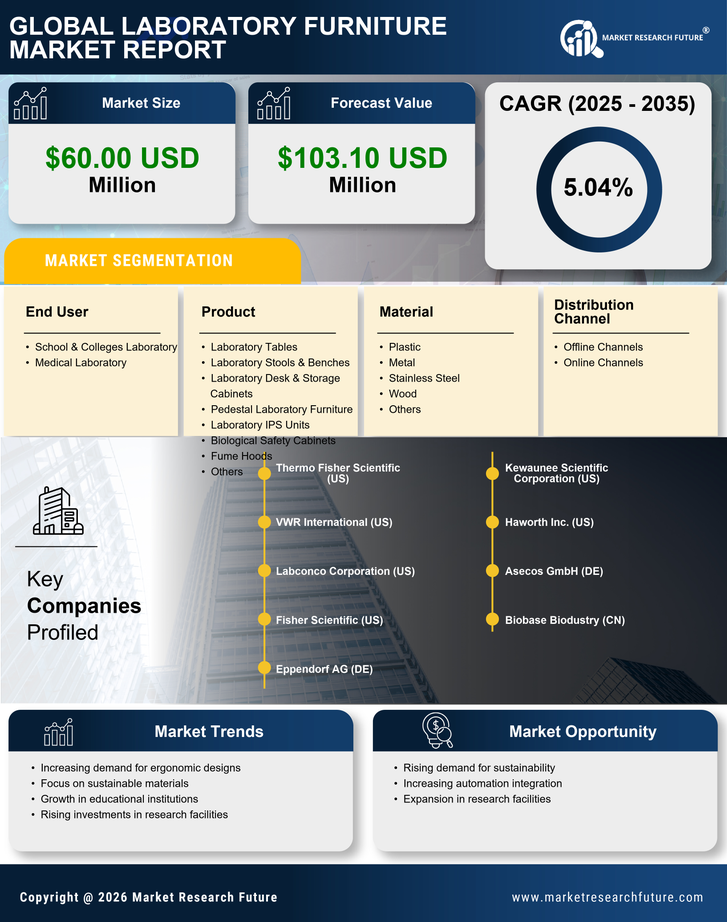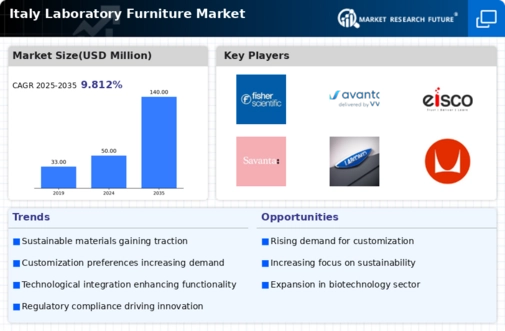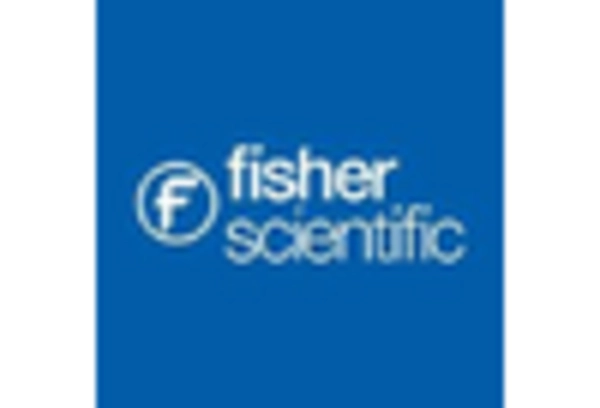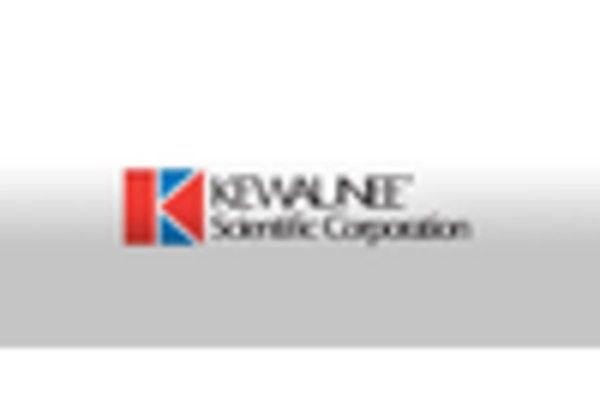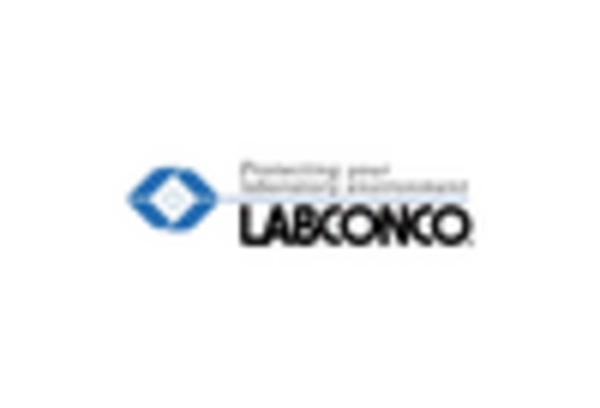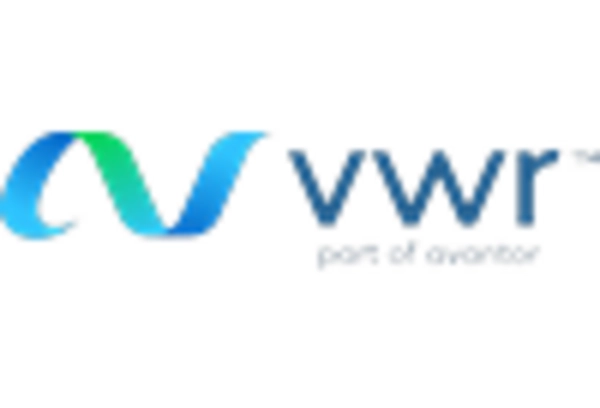Rising Demand for Research Facilities
The laboratory furniture market in Italy is experiencing a notable surge in demand due to the increasing establishment of research facilities. This trend is driven by both public and private investments aimed at enhancing scientific research capabilities. According to recent data, the Italian government has allocated approximately €1 billion for research and innovation initiatives, which is likely to boost the need for specialized laboratory furniture. As these facilities expand, the requirement for high-quality, durable, and functional furniture becomes paramount. This growth in research infrastructure not only supports academic institutions but also fosters collaboration with industries, thereby propelling the laboratory furniture market forward.
Focus on Compliance and Safety Standards
In Italy, the laboratory furniture market is significantly influenced by stringent compliance and safety regulations. Laboratories are required to adhere to specific standards set by regulatory bodies, which necessitates the use of furniture that meets these criteria. This includes materials that are resistant to chemicals and easy to clean, ensuring a safe working environment. The market is projected to grow as manufacturers innovate to produce compliant furniture solutions. It is estimated that around 70% of laboratory managers prioritize safety features when selecting furniture, indicating a strong market driver focused on compliance and safety in laboratory settings.
Emphasis on Customization and Flexibility
Customization and flexibility are becoming critical factors in the laboratory furniture market in Italy. As laboratories evolve to accommodate diverse research needs, the demand for adaptable furniture solutions is on the rise. Manufacturers are increasingly offering modular designs that can be tailored to specific laboratory layouts and workflows. This trend is particularly relevant in academic and industrial research settings, where space optimization is essential. It is estimated that customized laboratory furniture can enhance operational efficiency by up to 30%, making it a vital driver in the market.
Increased Investment in Educational Institutions
The laboratory furniture market is also being propelled by increased investment in educational institutions across Italy. Universities and technical colleges are expanding their laboratory facilities to provide students with hands-on experience in scientific research. This investment is often accompanied by the need for modern, functional laboratory furniture that supports various educational programs. Recent reports indicate that educational spending in Italy has risen by approximately 5% annually, which is likely to sustain the demand for laboratory furniture. As institutions strive to enhance their educational offerings, the laboratory furniture market stands to benefit significantly.
Growth of Biotechnology and Pharmaceutical Sectors
The laboratory furniture market is benefiting from the rapid expansion of the biotechnology and pharmaceutical sectors in Italy. With the increasing number of biotech startups and pharmaceutical companies, there is a heightened demand for specialized laboratory environments equipped with appropriate furniture. Recent statistics suggest that the Italian biotech sector has grown by over 15% annually, leading to a corresponding rise in the need for laboratory furniture. This growth is likely to continue as innovation in drug development and biotechnology research intensifies, further driving the laboratory furniture market.
